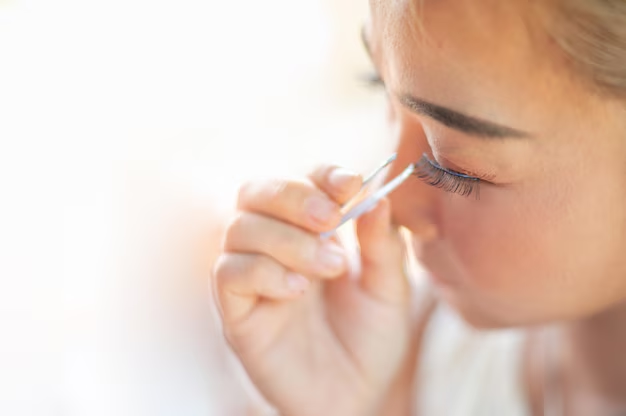Your Guide to What Are The Three Eye Drops Used After Cataract Surgery
What You Get:
Free Guide
Free, helpful information about Cataract FAQ and related What Are The Three Eye Drops Used After Cataract Surgery topics.
Helpful Information
Get clear and easy-to-understand details about What Are The Three Eye Drops Used After Cataract Surgery topics and resources.
Personalized Offers
Answer a few optional questions to receive offers or information related to Cataract FAQ. The survey is optional and not required to access your free guide.
Essential Eye Drops After Cataract Surgery: What You Need to Know
Recovering from cataract surgery involves careful aftercare to ensure optimal healing and vision improvement. Among the most critical components of this aftercare are the eye drops prescribed to patients. These medications help prevent inflammation, infection, and ensure proper healing. Let's explore the three primary types of eye drops commonly recommended by healthcare professionals following cataract surgery.
Why Eye Drops Are Crucial After Cataract Surgery
Cataract surgery is a procedure where the clouded lens of the eye is replaced with an artificial lens. While the surgery itself is often completed quickly and safely, the healing process significantly relies on post-operative care, including the use of eye drops. These drops serve several purposes, such as reducing the risk of complications and promoting smoother recovery.
Key Functions of Post-Surgery Eye Drops
- Reduction of inflammation: Cataract surgery can cause inflammation which, if left untreated, may lead to further complications.
- Prevention of infection: The surgical incision creates a potential entry point for microorganisms, making infection control paramount.
- Facilitation of healing: Proper medication can help in the swift recovery of the eye, allowing patients to return to normalcy sooner.
The Three Essential Eye Drops
1. Antibiotic Eye Drops
These drops are crucial for preventing infections after surgery. They play a vital role in protecting the eye from harmful bacteria that can cause severe complications.
Types of Antibiotic Eye Drops
- Fluoroquinolones: Commonly used due to their broad-spectrum activity against various bacteria.
- Macrolides: These may be used if patients have specific sensitivities or allergies.
Usage: Typically prescribed for the first week or two following surgery.
2. Anti-inflammatory Eye Drops
Inflammation management is critical to avoid pain, swelling, and potential impairment of the newly inserted lens.
Non-Steroidal Anti-Inflammatory Drugs (NSAIDs)
- Provide reliable anti-inflammatory effects without the risks associated with steroids.
- Commonly used NSAID drops include ketorolac and bromfenac.
Corticosteroid Drops
- May be prescribed for more aggressive inflammation.
- Usage is often tapered to prevent side effects such as increased intraocular pressure.
Usage: Administered for several weeks, often starting with frequent applications that gradually reduce.
3. Lubricating (Artificial Tears) Eye Drops
Surgery may disrupt the natural moisture balance of your eye, leading to dryness and discomfort.
Purpose:
- To provide relief from dryness by adding moisture.
- To enhance comfort and support healing by maintaining a protective layer over the eye.
Usage: Recommended as needed throughout the entire recovery period.
Best Practices for Using Post-Surgery Eye Drops
Administration Tips
- Wash your hands thoroughly before handling eye drops.
- Avoid touching the dropper tip to any surface, including your eye, to prevent contamination.
- Follow your prescribed schedule carefully, adhering to the number of drops and timing as suggested.
Storage and Handling
- Keep drops at the recommended temperature.
- Ensure the bottle's cap is securely replaced after use.
- Discard any expired or unused medication as per guidelines.
Remembering Your Drops
- Use a digital reminder app or set alarms on your phone.
- Keep your eye drops within easy reach, such as in your bag or near your bedside table.
Navigating Recovery: Tips and Insights
Healing from cataract surgery extends beyond the use of eye drops. Here are additional considerations to keep the recovery process as smooth as possible:
Protecting Your Eyes
- Wear protective eyewear outdoors to guard against dust, UV rays, and wind, which may irritate your healing eye.
- Limit screen time to reduce eye strain and ensure proper rest for your eyes.
Monitoring Your Progress
- Attend all follow-up appointments with your eye care provider to track healing progress.
- Be alert for any unusual symptoms, such as persistent pain, vision changes, or increased redness, and seek medical attention if they occur.
Patient Lifestyle Modifications
- Avoid lifting heavy objects or engaging in strenuous activities until cleared by your doctor.
- Refrain from swimming or using hot tubs, as water can introduce bacteria to your eye.
Quick Recovery Tips for Post-Cataract Surgery Patients
Here's a handy summary to help you remember the essentials of recovery and eye drop usage after cataract surgery:
- 🕒 Stick to your schedule: Use a reminder system to keep track of your eye drop regimen.
- 🛡️ Protect your eyes: Use sunglasses and avoid environments that may introduce contaminants.
- 🌊 Stay hydrated: Keep your eyes moist with lubricating drops and drink plenty of water.
- 🚫 Avoid irritants: Stay out of dust-laden spaces and avoid rubbing your eyes.
- 🚶 Take it easy: Gradually ease back into daily routines as your eye heals.
By following these guidelines and understanding the purpose of your post-operative eye drops, you can help ensure a successful recovery and optimal vision restoration. Taking the time to carefully adhere to prescribed treatments and protections empowers you to be proactive about your eye health during this critical period.
What You Get:
Free Cataract FAQ Guide
Free, helpful information about What Are The Three Eye Drops Used After Cataract Surgery and related resources.

Helpful Information
Get clear, easy-to-understand details about What Are The Three Eye Drops Used After Cataract Surgery topics.

Optional Personalized Offers
Answer a few optional questions to see offers or information related to Cataract FAQ. Participation is not required to get your free guide.


